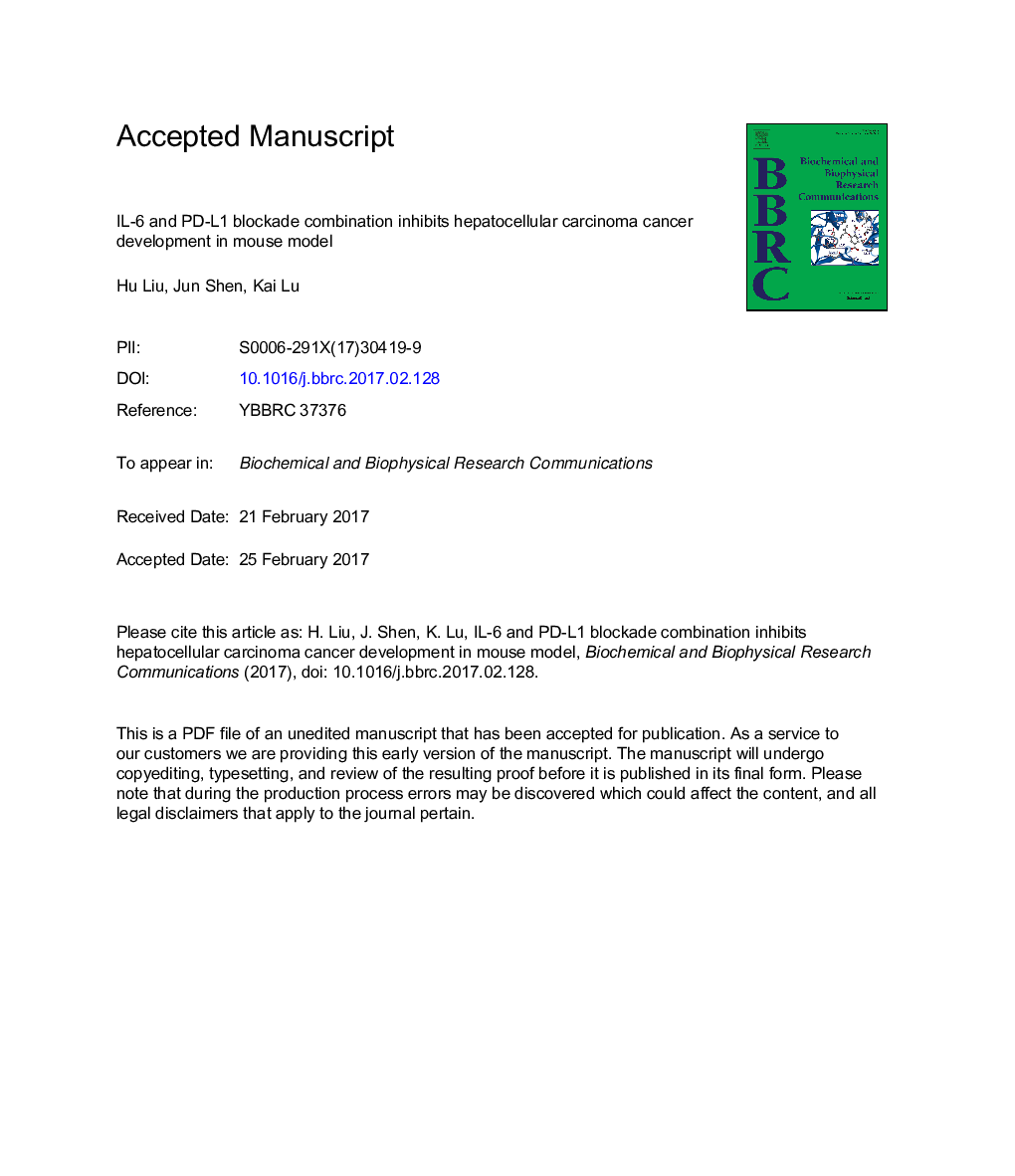| Article ID | Journal | Published Year | Pages | File Type |
|---|---|---|---|---|
| 5505968 | Biochemical and Biophysical Research Communications | 2017 | 18 Pages |
Abstract
Limited efficacy of immune checkpoint inhibitors in hepatocellular carcinoma (HCC) was observed in clinical trials, thus prompting investigation into combination therapy. Interleukin-6 (IL-6) has important roles in modeling immune responses in cancers. Here, we hypothesized that IL-6 blockade would enhance antitumor immunity of HCC and synergize with anti-programmed death-1-ligand 1 (PD-L1) checkpoint inhibitor in treating HCC. The sources and immune modulating effects of IL-6 were investigated in HCC models. Combination of anti-IL-6 and anti-PD-L1 was tested in HCC bearing mice. We found that IL-6 is mainly secreted by cancer associated fibroblast (CAFs), but not tumor cells in HCC. High IL-6 expression CAFs could induce strong immunosuppression in HCC microenvironment by recruiting immunosuppressive cells, such as myeloid derived suppressive cells. In addition, high IL-6 expression CAFs also impaired tumor infiltrating T-cell function via upregulating inhibitory immune checkpoints. Using IL-6 blockade could reverse anti-PD-L1 resistance in HCC tumor model. In conclusion, our study indicates that targeted inhibition of IL-6 may enhance the efficacy of anti-PD-L1 in HCC, providing a potential strategy to overcoming anti-PD-L1 resistance in HCC.
Related Topics
Life Sciences
Biochemistry, Genetics and Molecular Biology
Biochemistry
Authors
Hu Liu, Jun Shen, Kai Lu,
